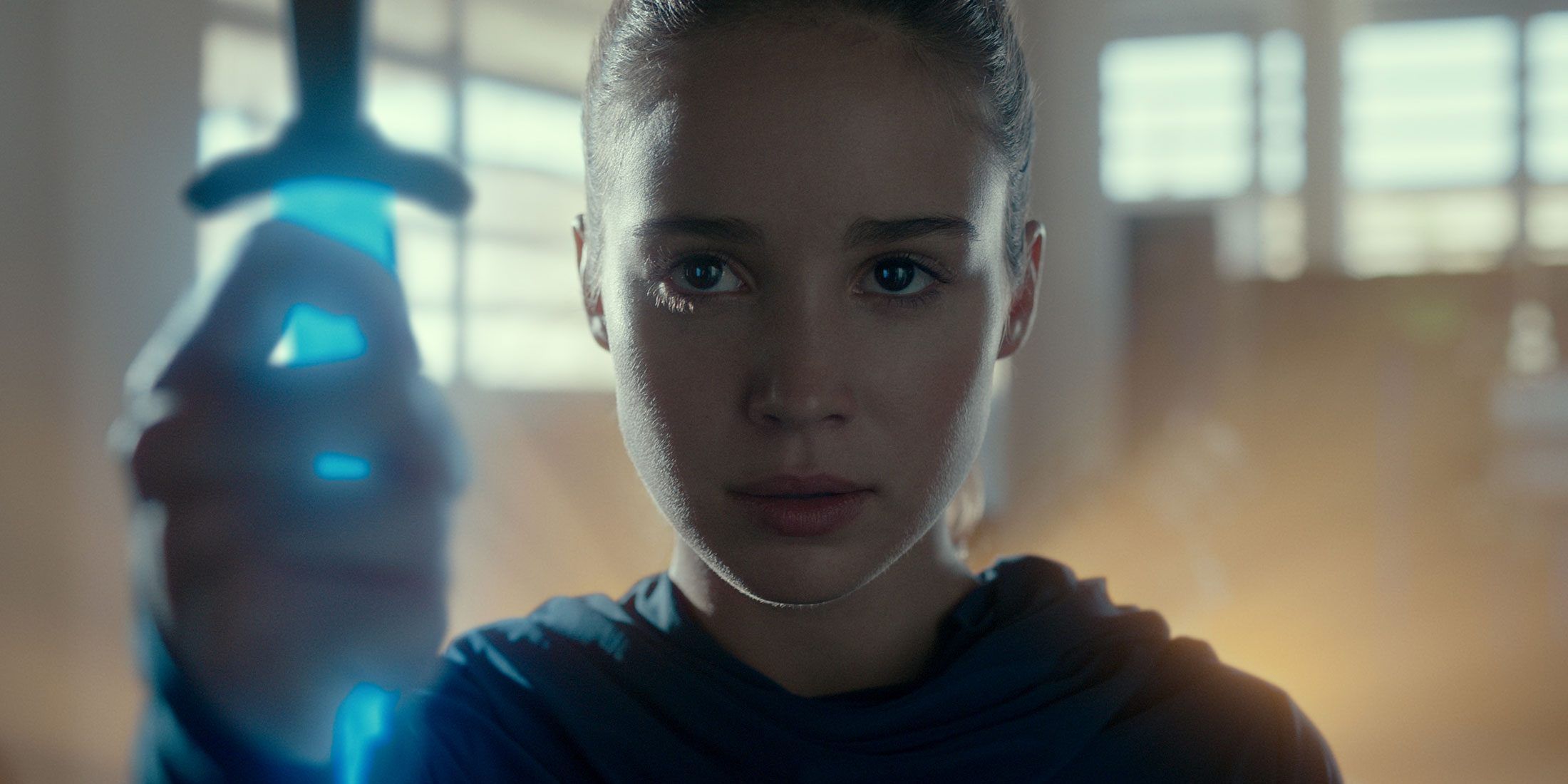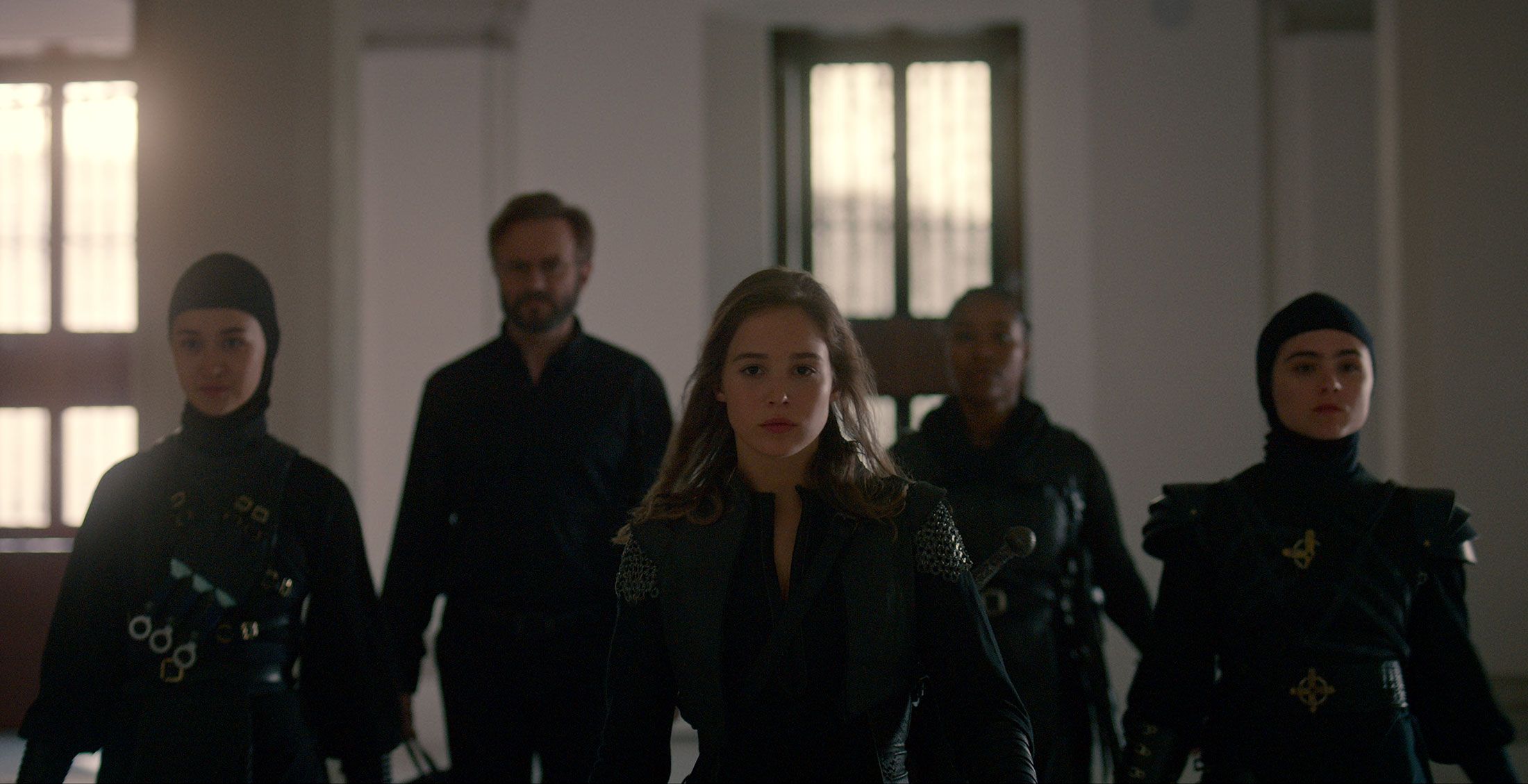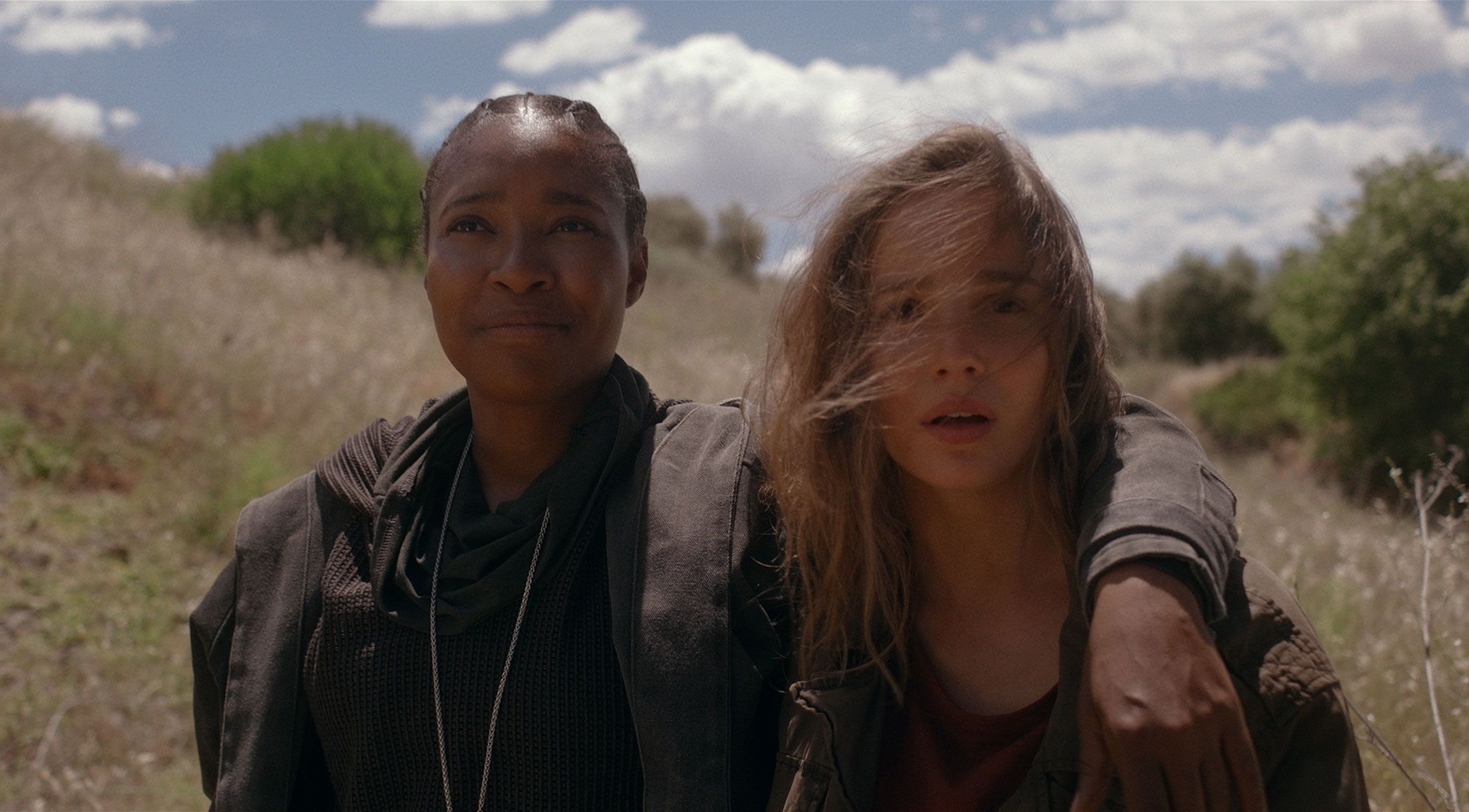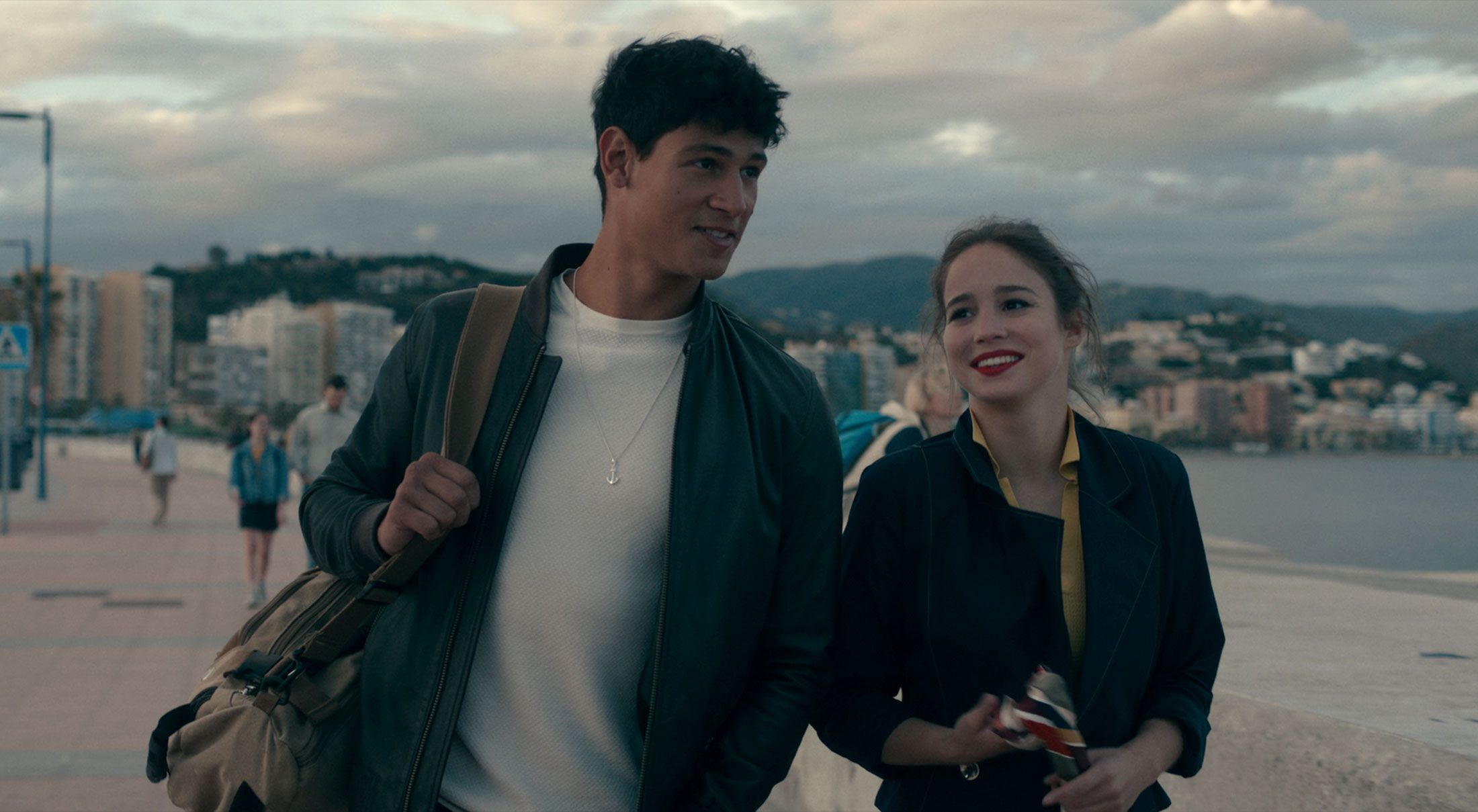Prolific writer and producer Simon Barry has developed numerous fan-favorite series for television, including 2012's Continuum. Barry's latest television project is an adaptation of the comic book Warrior Nun for Netflix, bringing the 1993 comic Warrior Nun Areala by Ben Dunn to life as the series' showrunner and executive producer. Following a young woman named Ava who is resurrected by a holy artifact, the series has its eponymous protagonist plunged in the middle of a secret war between the forces of Heaven and Hell, with the fate of humanity hanging in the balance.
With the first season now available to stream in its entirety on Netflix, Barry sat down with CBR for an exclusive interview to discuss adapting the property for television and teased plans for a potential second season.
What was it about this property that made you want to bring it to television and Netflix?
Simon Barry: When I was first introduced to the material, via a friend of a film producer named Dean English who wanted to adapt the books and sent me some of the books to look at. I was immediately taken with the attitude and the in-your-face kind of tone of the books. Obviously, to do an adaptation for modern audiences, it had to be adjusted. But I saw a lot of potential in the mythology of the books and the characters and I also liked that it didn't take itself too seriously; it was having fun but it still had these stakes of good and evil.
So it was really from that point that I was intrigued and I knew that a feature adaptation was going to be challenging because there was so much story, there's so much to tell. So I suggested to Dean that we do the TV version -- which is more in my wheelhouse anyway, being a showrunner -- and he got permission to pitch it to Netflix who, I think, saw a very similar opportunity that I did which is kind of encapsulated in the title: It's shifting tone and kind of a religious story but also have fun with it.
One of the more striking things about the adaptation is its predominantly set in Spain. What made you want to take it to a European setting?
Barry: I knew early on, with the mythology for the show that we were developing in the writing room, particularly, we needed a sense of history and a sense of Christian history because we were tying in the origins of the halo to the Crusades. And, also, because this show is a little bit irreverent and kind of out-there, I wanted a place that would feel grounded. And the thing about Spain is there's such history in every direction with the churches and castles and landscape, and it just felt right that we ground the show -- because the show is so out-there, by grounding the show's stakes to good and evil and connecting it to Christian mythology -- that there would be a need to make the setting feel a little bit more real and not new. I think the age and the history that's always kind of there in the visuals really helped the show feel a little bit more rooted.
A lot of this season revolves around the dynamic between Alba Baptista and Toya Turner's characters, who are polar opposites in a lot of ways. What made you want to build the entire show around that?
Barry: Certain things pop when you're making a show. I don't think, in the writing room, we were necessarily envisioning the chemistry that those two performers had. Alba and Toya just fired off each other in a really great way, which was one of those things that you get to benefit from but you can't plan sometimes. As much as we wanted to build up the relationship between those two on the page, I think what you're talking about really, came out of the execution of their ability to differentiate themselves and also be equals in terms of their belief in themselves and their characters which really served the show well. And that's really the alchemy behind making a television show, sometimes those things happen and it just works and you lean into it.
But, on the page at least, Shotgun Mary was always someone who was going to be challenging, not only to the other nuns but also to Ava. We just got lucky, I guess. I wish it was something I could conjure as the showrunner but it really comes down to doing your homework and casting the right people and hoping, since you don't know, that the chemistry will reveal itself on the floor and it did.
In terms of casting, what made Alba Baptista the perfect Ava? She's got to go super dark but she also gets to cut loose as early as the pilot episode.
Barry: Yeah, that was really the hard work of our casting directors. We had casting directors in the U.S., Spain and England and everybody really worked very hard to find this version of Ava that we had in our minds but we couldn't really articulate the specific person. It was really a bit of luck and hard work combined that we discovered Alba via our U.K. casting in a talent showcase that was going on in Ireland. She's from Portugal, she hadn't really had exposure in the North American market and we asked her to do a couple of auditions on tape and I immediately saw the potential. To me, it was like seeing another Natalie Portman or Alicia Vikander, I was impressed with her ability to grab your attention and deliver an honest performance, even in the confines of an audition. So I was really keen and pushed to get Netflix to approve her as fast as possible.
Of all things you got to inject into this adaptation, what are you most proud of in interpreting this for television?
Barry: Production value would be number one, I wanted the show to feel like it had twice the budget that we had. [Laughs] Even though we had a big mythology and had a lot of effects and big ideas and expensive content, we didn't have the budget that was going to allow us to do it the easy way so we kind of had to take the harder, more creative route and find our opportunities where they were. We're always happy when people go "I got the show, it looks beautiful, it's lush, it looks expensive and well-produced!" That's always something that's at the forefront of your mind when you put this out for the world, that the audience could reject it if it looks badly made. So being in Spain gave us an advantage because Spain has some of the most talented craftspeople that I've ever worked with. The art departments and lightning departments and location teams are just world-class, having their expertise and those people that were part of our Spanish crew.
The other thing would be the soul of the show, which is the writers' room experience. We really wanted to dig down and make the show about sisterhood and about women supporting women in a way that was unique and exciting and challenging and different from any other version that was sort of out there. I think we did accomplish something that was not like any other show. I know there's a comparison to Buffy the Vampire Slayer with the setup but, in terms of the soul of the show, this journey that we take with all these women, who are very independent and unique, and find a way to come together was very satisfying. I think all the care that went into this, with the writing room and directors and the cast, shines through.
In terms of production value, almost every episode has a pretty big action sequence. How was coordinating that and getting the cast to participate?
Barry: It's a challenge! It's definitely the most complicated part of making the show because action sequences, by their very nature, take up more time than other scenes and you're sort of sacrificing the time you have to shoot the show by adding action sequences. But, by the same account, you need them in a show called Warrior Nun because it's a show that demands to have action and you want to make sure they're done well.
So we had a couple of advantages going in in that we had a cast that was game to do a lot of the stunt work; a lot of the cast were involved in the stunts directly and wanted to do those sequences which gave it a sense of realism. And then we had a team in Spain that were from all over Europe that were world-class and just were incredible, not only training the actors to be like stunt people but also, in the cases where we did have doubles, were phenomenally talented and had great choreography and action design ideas.
And then rolling into the visual effects, which were a big part of our action sequences, we had one of the best visual effects companies in the world, The Embassy, who did District 9 and Iron Man. They were instrumental in giving us the scope in some of the sequences we needed, in terms of VFX especially with the demons, that we felt all the pistons were firing on the show; everything was working together. That's what it always comes down to, though. I've worked on several shows now and I've realized that everyone has to work together, you can't have one thing standing out, you need to have everything standing out, that way it works.
I know it's still early days but have you talked to Netflix about developing a potential second season or follow-up and do you have any ideas where that would go?
Barry: We had ideas out of the first season writing room that we thought would be interesting for a second season if we were lucky enough to get one. So yeah, we definitely encourage Netflix to pursue that. They have a very strategic process where if the audience shows up, the second season and third season happens. So we knew that going in and we were going to be part of that process as a new show to find an audience to make sure that could happen. To answer you question, yes, the writers and I discussed at length many ideas for Season 2 and we look forward to being able to implement them.
Based on the comic book series by Ben Dunn, Warrior Nun was developed for television by Simon Barry and stars Alba Baptista and Tristan Ulloa. The series is available to stream now on Netflix.




